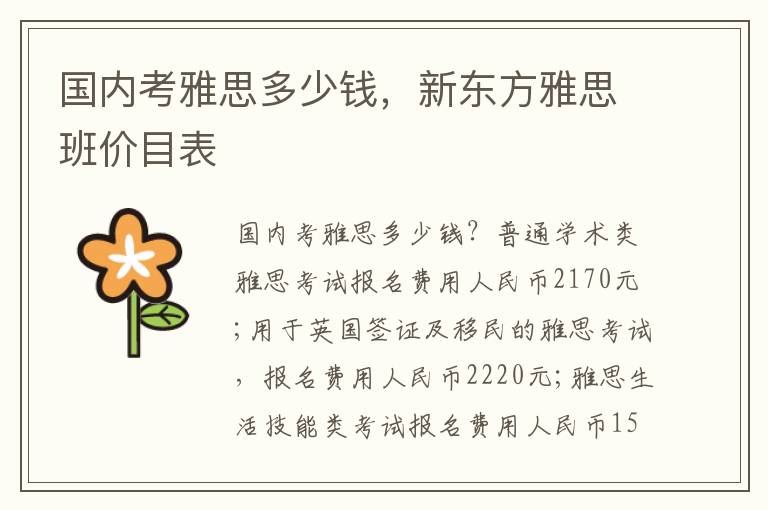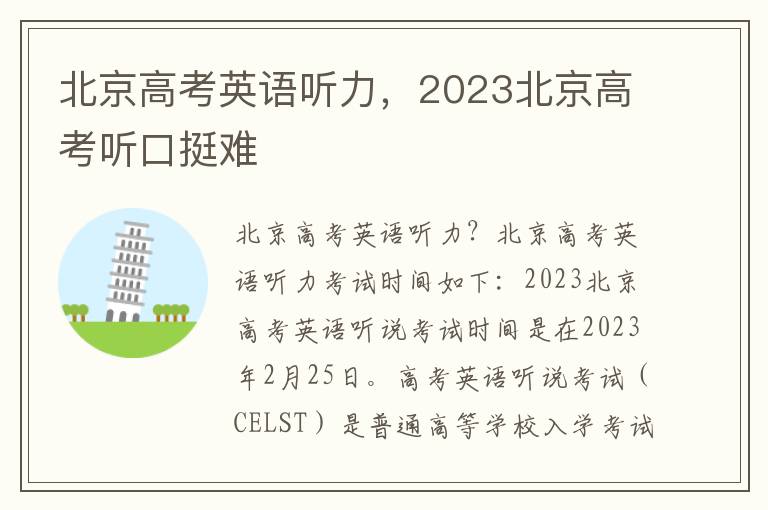【简介】感谢网友“雕龙文库”参与投稿,这里小编给大家分享一些[db:SEO标题],方便大家学习。
The well-heeled Chinese tourists that plied the boutiques of upscale Tokyo neighborhoods just a few weeks ago have all but disappeared. Fancy tour buses that once lined the streets of Ginza are being idled, and department stores are cutting Mandarin-speaking staff.
几周前还蜂拥在日本东京高端社区精品店买东西的中国游客现在全都不见了踪影,以往排在银座大街上花哨的豪华大巴目前无人乘坐,百货商店也开始裁减会说普通话的员工。
The economic fallout from a territorial dispute between China and Japan has affected a broad cross-section of Japanese business. But perhaps the biggest blow has been to tourism, a sharp setback to a carefully crafted government-industry campaign to draw Chinese visitors as a key element of Japan's new growth strategy.
中国和日本领土争端产生的经济影响已为日本广阔的商业领域所感受到,而其中受打击最严重的或许是旅游业,这让日本精心设计的政府与旅游业界合力的计划严重受挫。该计划的目的是吸引中国游客,使之成为日本新增长战略的关键元素。
'Things are much quieter now. Before the island issue, we used to sell 30-40 high-end rice cookers a day to customers visiting from China. Now, it's down to just two or three,' said Ashraf Kawakami, a salesman at a Ginza outlet of Laox Co. a Chinese-owned electronics chain based in Tokyo. He was referring to a spat between the two countries over control of a chain of islands in the East China Sea that intensified in September.
Laox Co.是一家位于东京的电子产品连锁店,老板是中国人。该公司银座分店的销售员Ashraf Kawakami说,店里现在安静了许多,而在海岛问题出现之前,我们这里每天会向来自中国的游客售出30个至40个高端电饭煲,如今每天只售出两三个。他所说的海岛问题就是中日两国就东中国海(East China Sea,中国称东海)一系列岛屿的主权问题爆发的口水战,今年9月这一争端加剧。
Japan National Tourist Organization figures show the number of Chinese tourists in October totaled 71,000 people. That was down 33.1% from October 2011. The drop reverses a trend in the number of Chinese tourists coming to Japan.
日本国家旅游局(Japan National Tourist Organization)的统计数据显示,今年10月访日的中国游客总计7.1万人,较2011年10月下降了33.1%,这逆转了中国赴日游客人数渐增的趋势。
Two years ago, Japan eased visa regulations to allow more Chinese to visit, and companies here have increasingly sought to cater to these travelers.
两年前,日本放宽了签证规定,允许更多中国人赴日,而日本企业也纷纷力争迎合中国游客的口味。
In 2009, China moved ahead of Taiwan to become second only to South Korea in terms of visitors to Japan. Last year, 1.04 million Chinese traveled to Japan, compared with 391,000 who made the trip a decade ago.
2009年,中国赴日游客人数超过台湾,仅次于赴日游客最多的韩国。去年,有104万中国人赴日旅行,而10年前这个数字只有39.1万人。
But since mid-September, Japan's top two air carriers have seen cancellations mount for travel between the two countries. Japan Airlines Co. said it has received 21,800 seat cancellations so far, 9,800 outbound from Japan and 12,000 from China. Rival All Nippon Airways Co. said it has been beset with 46,000 seat cancellations, 18,000 departing from Japan and 28,000 from China.
然而自9月中旬以来,日本最大的两家航空公司中日航线取消预定座位的情况开始愈演愈烈。日本航空公司(Japan Airlines Co.)说,到目前为止收到了21,800个座位取消的通知,其中9,800个为日本赴中国航线的座位,12,000个为中国赴日本航线的座位。与之竞争的全日空(All Nippon Airways Co.)说,也受到中日航线座位取消的困扰,其中有18,000个来自日本,28,000个来自中国,总计取消座位46,000个。
The blowback also has affected Chinese air carriers. Spring Airlines was forced to cancel a promotion featuring discount tickets from Shanghai to two midtier Japanese cities on Oct. 17 -- two days after it started the campaign. That came amid fierce criticism of the company for violating a tacit embargo on leisure travel to Japan. 'We need to take the public sentiment into account,' said Spring Airlines spokesman Zhang Wu'an.
中国的航空公司也受到了影响。10月17日,春秋航空公司(Spring Airlines Co.)被迫叫停了刚刚推出两天的从上海到日本两个二线城市的促销航班。春秋航空的促销活动受到了激烈的批评,原因是该公司没有对赴日旅游进行抵制。春秋发言人张武安说,我们不得不考虑公众的感受。
Japanese hotels have been plagued with thousands of cancellations, particularly those catering to Chinese tourists near famous landmarks and top-end hotels in central Tokyo.
让日本酒店头疼的是,数千名游客取消了房间预订,尤其是日本有名的地标附近针对中国游客的酒店,以及东京市中心的高档酒店。
'We all saw bookings from China being canceled from mid-September through October. We normally get January through February bookings now, but that's also been very quiet,' said Malcolm Thompson, general manager of Peninsula Hotel Tokyo. 'We hope this China business doesn't go on for much longer as it's far too damaging.'
东京半岛酒店(Peninsula Hotel)的总经理汤普森(Malcolm Thompson)说,从9月中旬到10月,中国游客取消大量预订。每年的这个时候,游客都会预订1月到2月的客房,但是今年的预定也很少。我们希望这种情形不会持续更久,对我们的打击太大了。
The sag in Sino-Japanese tourism trend appears to be mutual. JTB Corp., Japan's largest travel agency, said it expects 70% fewer Japanese tourists to visit China in the second half of the year, compared with last year.
中日领土争端对旅游业的影响是相互的。日本最大的旅游公司JTB说,预计今年下半年,访问中国的日本游客数量同比将减少70%。
Ranked 30th in the world in terms of inbound visitors, Japan sees tourism as an important growth industry. Tokyo set up the Japan Tourism Agency in 2008, under the auspices of the Transport Ministry, to promote tourism. The agency's mission statement highlights 'East Asia markets including China' as the focus of that effort.
日本吸引到的外国游客数量在全球排名第30位,旅游业是日本的一个重要的增长型产业。2008年,日本政府在国土交通省(Transport Ministry)内设立了日本观光厅(Japan Tourism Agency),以促进旅游业的发展。该机构表示,包括中国在内的东亚市场是推动日本旅游业的重点。
The loss of Chinese tourists has been particularly hard. Not including round-trip airfare, Chinese tourists spent an average of176,360 ($2,145) per visitor while in Japan in the April-June quarter -- before the dispute heated up -- the biggest spenders of any nationality, according to Japan Tourist Agency data.
中国游客减少带来的损失尤其让人难以接受。根据日本观光厅的数据,在争端升温之前的今年4月到6月的这一季度,中国游客在日本的人均消费(不包括往返机票)为176,360日圆(约合2,145美元),高于其他任何国家游客的人均消费。
On a recent weekday at the Ginza Laox, four Mandarin-speaking sales assistants manning a wristwatch counter bedecked with Chinese-language marketing materials milled about with no customers in sight.
最近的一个周末,四名操汉语的销售助理站在银座Laox电子产品商店的一个手表专柜旁,柜台上装饰着中文广告,周围却没有一个顾客。
Mr. Kawakami said Chinese-speaking staff at the outlet had been halved to just eight sales assistants in recent weeks as a result of the lull in tourists from Chinese mainland.
Ashraf Kawakami说,由于中国大陆游客数量减少,最近几周,店里说中文的员工已经被裁减了一半,现在店内只有八名说中文的销售助理。
The well-heeled Chinese tourists that plied the boutiques of upscale Tokyo neighborhoods just a few weeks ago have all but disappeared. Fancy tour buses that once lined the streets of Ginza are being idled, and department stores are cutting Mandarin-speaking staff.
几周前还蜂拥在日本东京高端社区精品店买东西的中国游客现在全都不见了踪影,以往排在银座大街上花哨的豪华大巴目前无人乘坐,百货商店也开始裁减会说普通话的员工。
The economic fallout from a territorial dispute between China and Japan has affected a broad cross-section of Japanese business. But perhaps the biggest blow has been to tourism, a sharp setback to a carefully crafted government-industry campaign to draw Chinese visitors as a key element of Japan's new growth strategy.
中国和日本领土争端产生的经济影响已为日本广阔的商业领域所感受到,而其中受打击最严重的或许是旅游业,这让日本精心设计的政府与旅游业界合力的计划严重受挫。该计划的目的是吸引中国游客,使之成为日本新增长战略的关键元素。
'Things are much quieter now. Before the island issue, we used to sell 30-40 high-end rice cookers a day to customers visiting from China. Now, it's down to just two or three,' said Ashraf Kawakami, a salesman at a Ginza outlet of Laox Co. a Chinese-owned electronics chain based in Tokyo. He was referring to a spat between the two countries over control of a chain of islands in the East China Sea that intensified in September.
Laox Co.是一家位于东京的电子产品连锁店,老板是中国人。该公司银座分店的销售员Ashraf Kawakami说,店里现在安静了许多,而在海岛问题出现之前,我们这里每天会向来自中国的游客售出30个至40个高端电饭煲,如今每天只售出两三个。他所说的海岛问题就是中日两国就东中国海(East China Sea,中国称东海)一系列岛屿的主权问题爆发的口水战,今年9月这一争端加剧。
Japan National Tourist Organization figures show the number of Chinese tourists in October totaled 71,000 people. That was down 33.1% from October 2011. The drop reverses a trend in the number of Chinese tourists coming to Japan.
日本国家旅游局(Japan National Tourist Organization)的统计数据显示,今年10月访日的中国游客总计7.1万人,较2011年10月下降了33.1%,这逆转了中国赴日游客人数渐增的趋势。
Two years ago, Japan eased visa regulations to allow more Chinese to visit, and companies here have increasingly sought to cater to these travelers.
两年前,日本放宽了签证规定,允许更多中国人赴日,而日本企业也纷纷力争迎合中国游客的口味。
In 2009, China moved ahead of Taiwan to become second only to South Korea in terms of visitors to Japan. Last year, 1.04 million Chinese traveled to Japan, compared with 391,000 who made the trip a decade ago.
2009年,中国赴日游客人数超过台湾,仅次于赴日游客最多的韩国。去年,有104万中国人赴日旅行,而10年前这个数字只有39.1万人。
But since mid-September, Japan's top two air carriers have seen cancellations mount for travel between the two countries. Japan Airlines Co. said it has received 21,800 seat cancellations so far, 9,800 outbound from Japan and 12,000 from China. Rival All Nippon Airways Co. said it has been beset with 46,000 seat cancellations, 18,000 departing from Japan and 28,000 from China.
然而自9月中旬以来,日本最大的两家航空公司中日航线取消预定座位的情况开始愈演愈烈。日本航空公司(Japan Airlines Co.)说,到目前为止收到了21,800个座位取消的通知,其中9,800个为日本赴中国航线的座位,12,000个为中国赴日本航线的座位。与之竞争的全日空(All Nippon Airways Co.)说,也受到中日航线座位取消的困扰,其中有18,000个来自日本,28,000个来自中国,总计取消座位46,000个。
The blowback also has affected Chinese air carriers. Spring Airlines was forced to cancel a promotion featuring discount tickets from Shanghai to two midtier Japanese cities on Oct. 17 -- two days after it started the campaign. That came amid fierce criticism of the company for violating a tacit embargo on leisure travel to Japan. 'We need to take the public sentiment into account,' said Spring Airlines spokesman Zhang Wu'an.
中国的航空公司也受到了影响。10月17日,春秋航空公司(Spring Airlines Co.)被迫叫停了刚刚推出两天的从上海到日本两个二线城市的促销航班。春秋航空的促销活动受到了激烈的批评,原因是该公司没有对赴日旅游进行抵制。春秋发言人张武安说,我们不得不考虑公众的感受。
Japanese hotels have been plagued with thousands of cancellations, particularly those catering to Chinese tourists near famous landmarks and top-end hotels in central Tokyo.
让日本酒店头疼的是,数千名游客取消了房间预订,尤其是日本有名的地标附近针对中国游客的酒店,以及东京市中心的高档酒店。
'We all saw bookings from China being canceled from mid-September through October. We normally get January through February bookings now, but that's also been very quiet,' said Malcolm Thompson, general manager of Peninsula Hotel Tokyo. 'We hope this China business doesn't go on for much longer as it's far too damaging.'
东京半岛酒店(Peninsula Hotel)的总经理汤普森(Malcolm Thompson)说,从9月中旬到10月,中国游客取消大量预订。每年的这个时候,游客都会预订1月到2月的客房,但是今年的预定也很少。我们希望这种情形不会持续更久,对我们的打击太大了。
The sag in Sino-Japanese tourism trend appears to be mutual. JTB Corp., Japan's largest travel agency, said it expects 70% fewer Japanese tourists to visit China in the second half of the year, compared with last year.
中日领土争端对旅游业的影响是相互的。日本最大的旅游公司JTB说,预计今年下半年,访问中国的日本游客数量同比将减少70%。
Ranked 30th in the world in terms of inbound visitors, Japan sees tourism as an important growth industry. Tokyo set up the Japan Tourism Agency in 2008, under the auspices of the Transport Ministry, to promote tourism. The agency's mission statement highlights 'East Asia markets including China' as the focus of that effort.
日本吸引到的外国游客数量在全球排名第30位,旅游业是日本的一个重要的增长型产业。2008年,日本政府在国土交通省(Transport Ministry)内设立了日本观光厅(Japan Tourism Agency),以促进旅游业的发展。该机构表示,包括中国在内的东亚市场是推动日本旅游业的重点。
The loss of Chinese tourists has been particularly hard. Not including round-trip airfare, Chinese tourists spent an average of176,360 ($2,145) per visitor while in Japan in the April-June quarter -- before the dispute heated up -- the biggest spenders of any nationality, according to Japan Tourist Agency data.
中国游客减少带来的损失尤其让人难以接受。根据日本观光厅的数据,在争端升温之前的今年4月到6月的这一季度,中国游客在日本的人均消费(不包括往返机票)为176,360日圆(约合2,145美元),高于其他任何国家游客的人均消费。
On a recent weekday at the Ginza Laox, four Mandarin-speaking sales assistants manning a wristwatch counter bedecked with Chinese-language marketing materials milled about with no customers in sight.
最近的一个周末,四名操汉语的销售助理站在银座Laox电子产品商店的一个手表专柜旁,柜台上装饰着中文广告,周围却没有一个顾客。
Mr. Kawakami said Chinese-speaking staff at the outlet had been halved to just eight sales assistants in recent weeks as a result of the lull in tourists from Chinese mainland.
Ashraf Kawakami说,由于中国大陆游客数量减少,最近几周,店里说中文的员工已经被裁减了一半,现在店内只有八名说中文的销售助理。









